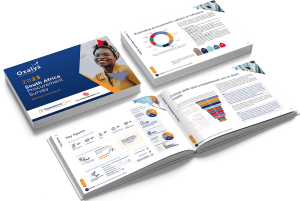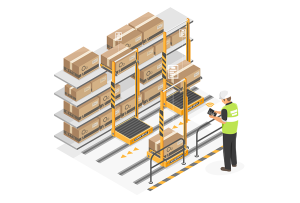 By Sammeli Sammalkorpi, VP: Customers and Co-founder of procurement analytics solutions provider Sievo
By Sammeli Sammalkorpi, VP: Customers and Co-founder of procurement analytics solutions provider Sievo
In late 2017, MIT’s Sloan Management Review (in collaboration with the Boston Consulting Group) seemed to confirm what most in procurement had long inferred. Our expectations for artificial intelligence (AI) are well out of proportion with our preparedness.
In short, we are fond of talking the talk, but almost totally unfamiliar with walking the walk. The abovementioned survey of more than 3 000 executives found that, while 85% expected AI to help “obtain or sustain a competitive advantage”, less than 39% had any sort of AI strategy in place. Just one in 20 had “extensively incorporated” AI into their organisation’s service offerings/day-to-day processes.
Not much has changed in two years. Deloitte’s Global Chief Procurement Officer Survey 2018 found that procurement’s digital dreams are still just that – dreams. Nearly three-quarters of procurement leaders are sceptical that their teams can truly embrace new digital tools. In spite of this, just 16% have made a point to focus on developing digital skills. This gulf between priorities and action has left procurement to contend with a massive digital skills gap.
This gap is just one of many factors keeping most organisations from realising the full potential of AI adoption.
Here are three more reasons AI still sounds, at least partially, like something out of a science fiction film:
1. A lack of data
AI’s possibilities look endless. Powered by greater volumes of more accurate data, AI-empowered solutions promise to bring about a new generation of more informed and strategic supply chain managers. Risks can be averted, processes can be simplified and a world-class deal can be all but guaranteed. Unfortunately, access to data is often anything but a guarantee. In fact, early AI adopters have rated access to usable, relevant data as their primary concern.
Evolving risk factors, and an increasingly volatile global economy, require quicker and more dependable data access. Record-keeping and compliance, however, have not always evolved alongside new tools and new concerns. For many organisations, the manual work of identifying and verifying data sources is still a daily obstacle. Procurement can begin to fill the gaps by taking a more collaborative and proactive approach. Actively engaging stakeholders and insisting on compliance with more data-literate methods will make valuable information an asset rather than an obstacle.
2. Increased complexity
The smarter technology grows, the less we humans are equipped to understand it. We simply cannot converse with machines the way we would with a human co-worker. This promises to present a slew of new challenges as AI grows exponentially more intelligent throughout the coming years. MIT’s Lily Fu writes that: “At a certain point, the algorithms used for deep neural networks somehow, miraculously produce accurate results”. Miracles are never a justification for decision making. It falls upon procurement to develop its skills for interpreting and acting upon its findings. This means retooling our hiring materials and bringing a new class of professionals into the fold.
3. A lack of trust
If nearly a century of speculation around AI has taught us one thing it is that machines are not to be trusted. Our increased reliance on them has not helped to alleviate these fears. As artificially-intelligent machines make more sophisticated, even surprising, decisions, they will only confuse and confound us more. In the book, AI in Procurement, Johan-Peter Teppala advises against “dumbing down” AI to make transitions smoother. These efforts will only slow down adoption and keep organisations from recognising the full potential of AI. Professionals should instead focus their efforts on eliminating the biases that keep them from trusting AI. Rather than limiting interactions with machines and algorithms, they should take pains to ensure that they aren’t burdening technology with their own all-too human prejudices and preconceptions.
In conclusion, Hackett suggests that a whopping 95% of procurement professionals expect digital transformation to fundamentally change the way they do business within the next three years. So far, they look to be hoping against hope.

























